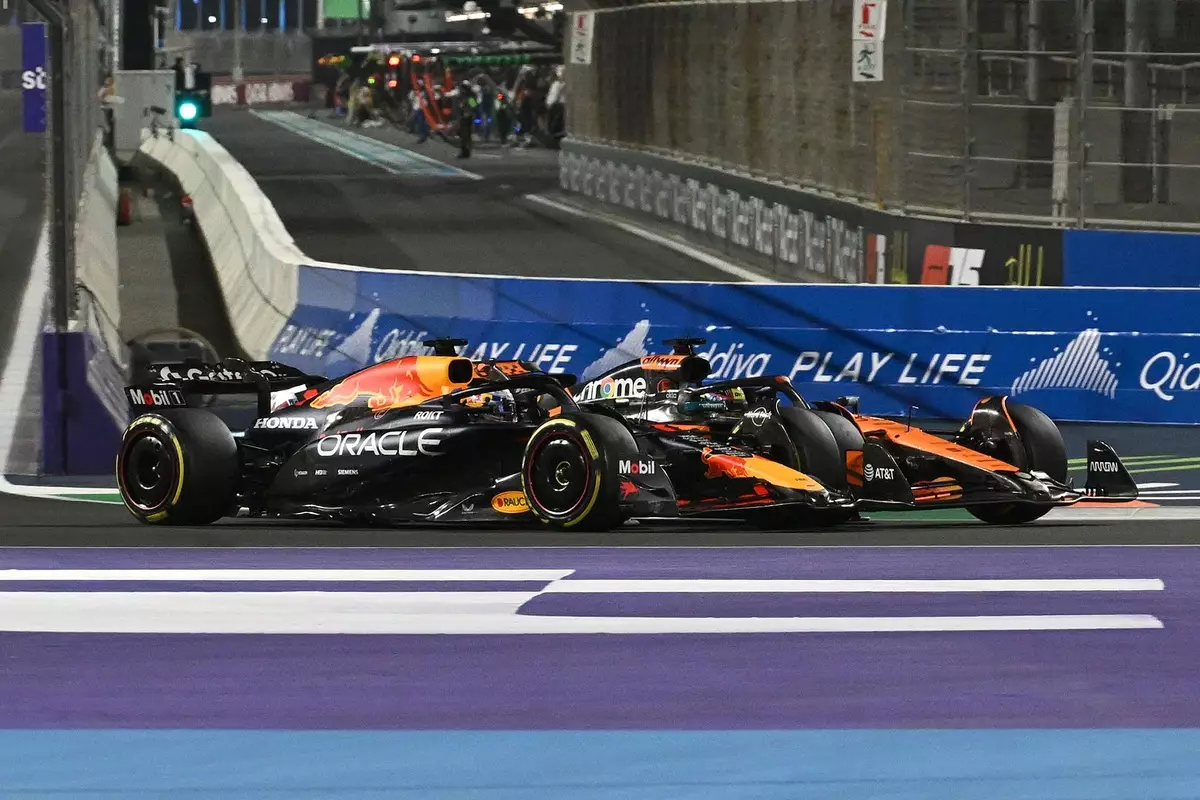Max Verstappen’s recent five-second penalty, imposed during the Saudi Arabian Grand Prix, has ignited fervent debates among Formula 1 enthusiasts and team strategists alike. The penalty arose after controversy surrounding the young Dutch driver’s maneuver against McLaren’s Oscar Piastri. Under pressure, Verstappen veered off the track, gaining an edge that led to the race stewards awarding him the penalty. Red Bull Racing, known for its fierce loyalty to its drivers, faced a dilemma: challenge the decision or redirect their energies toward future races.
Verstappen’s actions were born of competitive instinct, especially in a sport where milliseconds define success. However, this incident highlights the complex interplay between aggressive driving and rule adherence in Formula 1. Regulations are stringent and designed not just to ensure fair play but also to enhance the safety and integrity of racing. Yet, in the heat of the moment, are these rules too rigid? The team’s decision to forgo a right-of-review was as strategic as it was emotional, reflecting a stark awareness of the repercussions such actions might have.
Red Bull’s Calculated Decision
The decision by Red Bull to reject the opportunity to file a right-of-review petition plays into a broader strategy. Team principal Christian Horner assessed the potential for success as slim, noting that the stewards were likely to maintain their original ruling. Rather than expending resources in a futile attempt to overturn a decision that had already garnered consensus among officials, Red Bull opted to conserve its energy for upcoming races—an astute roadmap for their overall championship strategy.
In F1, momentum is everything. A team that keeps its focus on race performance and development rather than dwell on what could have been typically finds itself maintaining a competitive edge. The decision also signals to the drivers that the focus must remain not on past grievances, but on improving their race craft—irrespective of what transpired in controversial moments like these.
The FIA’s Role and Its Implications
The FIA’s involvement in the case displays the challenges sports governing bodies face when trying to enforce rules uniformly. Their determination to apply a penalty to Verstappen highlights a level of accountability that is crucial in maintaining race integrity. The stewards provided a lengthy explanation which asserts that Piastri had the right to the racing line due to his positioning, reinforcing the principle behind track etiquette in competitive racing.
From a fan’s perspective, the FIA’s rulings contribute to the rich narrative of the sport. Disputes over penalties are as much a part of F1 as the races themselves, sparking debates that often transcend the track. However, the impact of a ruling like this extends beyond a single race; it can influence a team’s tactics for the entire season, forcing teams to reconsider how aggressively they can push their drivers. The balancing act between pushing the limits and obeying the rules is a delicate one.
Impact on Future Performances
By choosing not to pursue a lengthy appeal process, Red Bull can keep its eyes on the ultimate goal: championship points and potential victories. The move may also foster a calm environment within the team. Pressure can lead to erratic decision-making, both from drivers and team management. A clear, focused team is often one that performs well under pressure.
Moreover, with the possibility of further penalties for similar infractions hanging over their heads, Red Bull’s drivers now have a clear directive: to refine their tactics on track and make every overtaking maneuver adhere strictly to regulations to avoid penalties that could prove detrimental in the long term.
In the world of F1, timing, composure, and tactical decisions can often spell the difference between glory and obscurity. The choice to look forward instead of back might just be what keeps Red Bull not only in the running for points but also in the conversation for championship contention.


Leave a Reply